Latino communities suffer as some states see record numbers of COVID-19 cases
Latinos in Alabama, California, Maryland and Utah share their stories.
Latino communities suffer as some states see record numbers of COVID-19 cases
Friday marked the third straight day of record high cases of COVID-19 nationwide. Twenty-nine states, including California, Texas, Arizona and Florida, are seeing cases rise and it's clear once again the virus is not hitting all demographics equally.
A recent study from the Brookings Institution showed that adjusted for age, the average Latino in the U.S. is 2 1/2 times more likely to die from COVID-19 than the average white person. A new analysis from The New York Times showed the virus is spreading at more than double the rate in counties that are at least a quarter Hispanic.
For many, the combination of a language barrier and what critics say is a lack of forthcoming information from public health officials is contributing to the spiraling health crisis in communities across the U.S.
"What people are practicing is bad science. They are using their biases," Dr. Jane L. Delgado, president and CEO of the National Alliance for Hispanic Health, told ABC News. "Their predisposed beliefs about us make health care decisions that will not only hurt us, but it's going to cost the system more, because bad medicine costs more than good medicine."
"The health system now still uses one size fits all. And that's not true," she added. "We work in jobs where we're going to be at risk and be at risk of exposure."
Maximo Cabral may have gotten it from his work. The 35-year-old is originally from Zacatecas, Mexico, and has been living in Alabama for three years with his girlfriend and her two daughters. Cabral has been working on opening a small business delivering food.
"My year started off well because I became a U.S. citizen," he told ABC News in Spanish. "But this virus arrived and it's been bad for everyone."
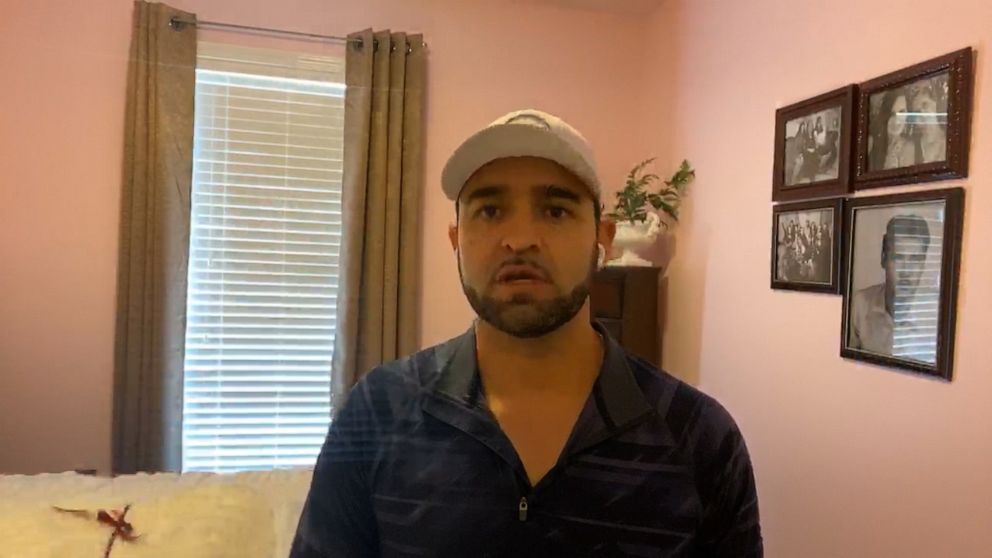
Five percent of Alabama's population is Latino, but they make up 10% of the state's COVID-19 cases.
"I had an awful headache for three days. I didn't think it was the virus," he said. "I decided to get tested after my partner got tested and it came back positive. Then … I learned I had it."
Cabral is connected to The Hispanic Interest Coalition of Alabama, which champions economic equality, civic engagement and social justice for Latino families in the state.
Delgado said it's a disease that has struck the "soul and mental health well-being" of the Latino community.
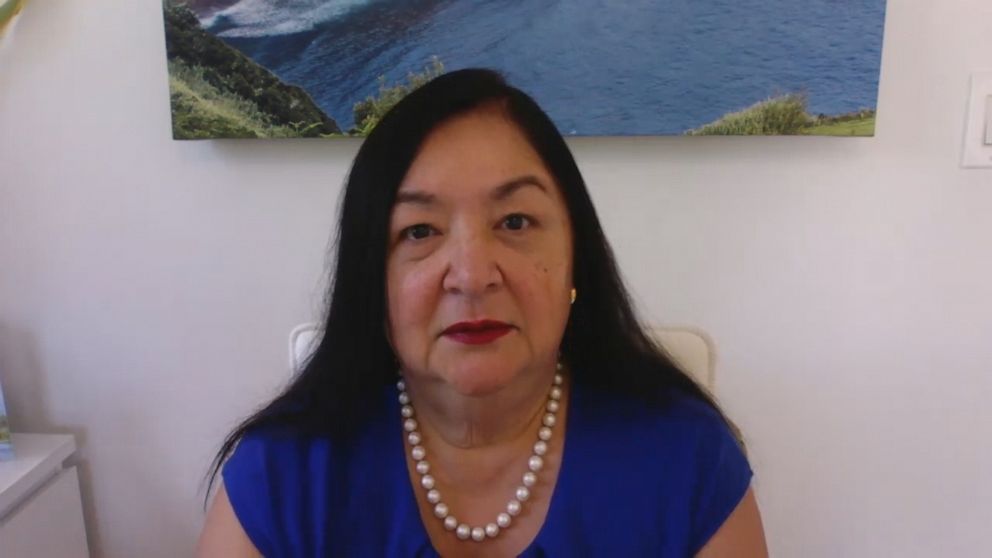
"The pain is palpable, because when people have to make a decision between feeding their children or going to a job where they would be at risk, that creates a kind of mental health stress that only wears the individual down," she said.
In California, Latinos make up 39% of the population, but 57% of COVID-19 positive cases, according to the state's department of health.
"I grew up in LA. This is my community. The communities that we serve, the patients that we serve, are really like my family," Dr. Erika Flores Uribe, an emergency physician for Los Angeles County, told ABC News. "My parents are actually custodians in the LA County area. There's a lot of questions that come up in terms of how do we practice physical distancing?"
She has little time off and she's been cut off from her family while works to combat a continuing surge in COVID-19 cases. She said she keeps in touch with her family through video chat or by driving by her parents' house and waving from her car.
"It's not uncommon for me to take care of my patients in the ER and 8 out of 10 of them are Spanish speaking," she said.
Uribe said the community is grappling with less access to health care in addition to the inability to isolate.
"LA County has seen an increased number in Latinx or Hispanic populations hit pretty hard with COVID-19," Uribe said. "Our communities occupy a lot of essential workforce positions. This limits the capacity to do telework or to have paid sick leave. Culturally and financially our communities occupy multigenerational housing, so that makes it really difficult to isolate or quarantine."
"Most of the cases are coming because a family member got sick and they tested positive," she added. "There might be several people living, including maybe six people, in a two-bedroom home where now other family members are also getting COVID-19, because of the lack of capacity to isolate."
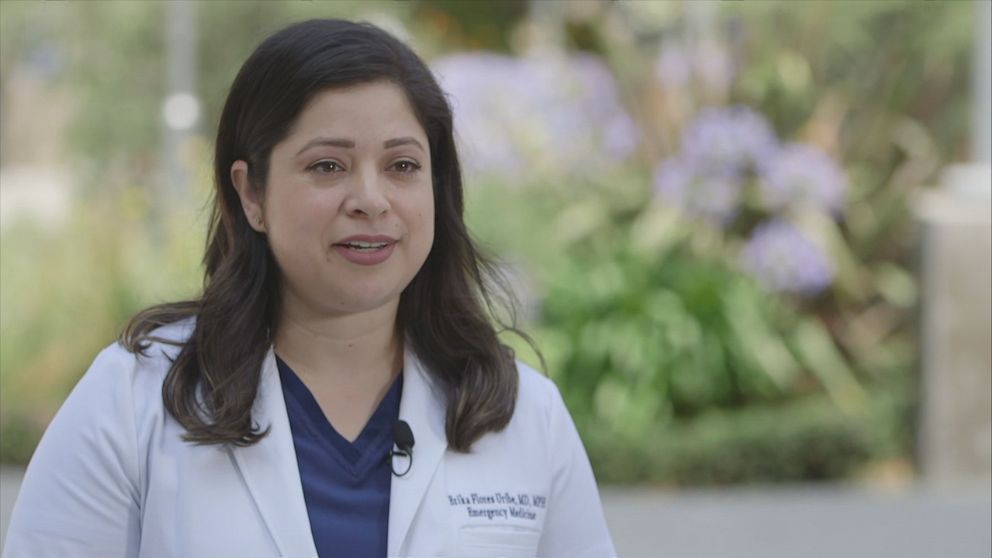
Isolation runs directly in contrast to the culture of these communities, Delgado said.
"Even when people have income and space, telling people to self-isolate is sort of in some ways countercultural," she said. "It requires a lot of restructuring. And it's very hard to do that. [Are] you gonna tell your abuela -- grandmother -- that, you know, she can't eat with other people?"
In Maryland, Latinos make up only 10% of the population, but 24% of coronavirus cases, according to the state's department of health.
There, Candida Garcia helps feed about 100 to 120 families with the Maryland League of Conservation Voters.
"These are people with limited resources. They live paycheck to paycheck," she said in Spanish. "If they're not working, they're missing that loaf of bread at the table."
Some families have lost their jobs, others have tested positive for the virus, Garcia said.
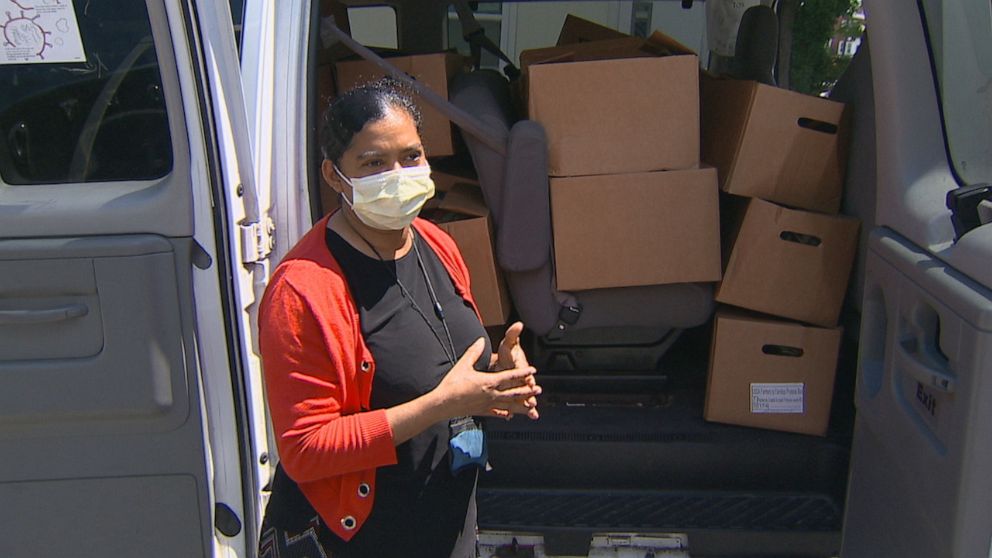
"That's why I decided to help, because I saw the need for it," she said.
In Utah, Latinos make up 14% of its population, but 43% of their coronavirus cases, according to its department of health.
Utah state Sen. Luz Escamilla said she started to have difficulty breathing but didn't qualify for a COVID-19 test at first because her symptoms weren't severe enough.
"Your body aches, I mean, everything -- your neck, your back. That's when my husband starts feeling sick," she said. Three days later, "we were at the hospital, both of us. And within 48 hours, literally 48 hours from the time we tested, is when our results came back, both of us with a positive result on COVID-19."
She took aim at the White House for its handling of the crisis, saying its actions have been "discriminatory" against Latino communities.
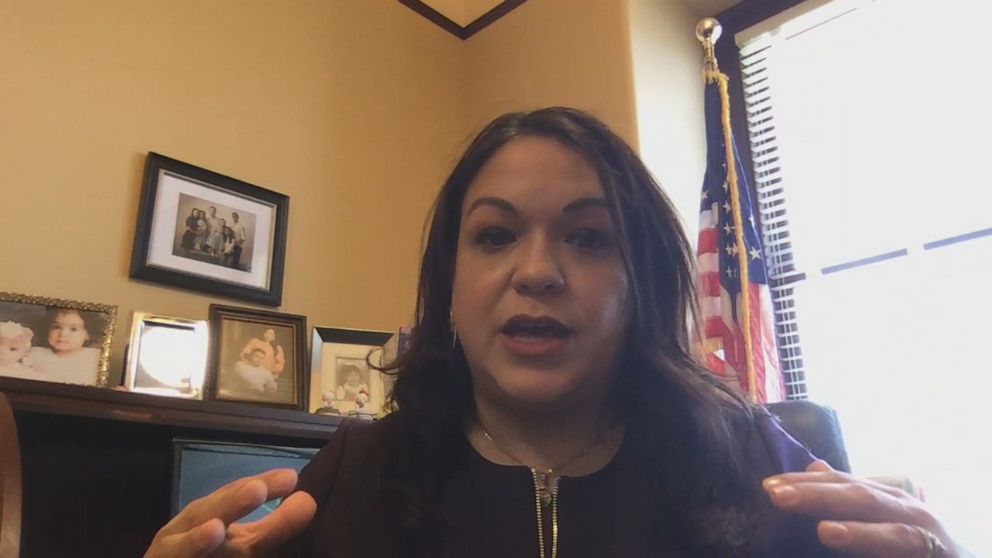
"If you are in the United States and you go for free COVID testing or treatment, it will not be held against you as a public charge," Delgado said. "That doesn't mean that people are not fearful. I mean, it's very hard to trust the government given the way the government has treated immigrants over the last few years."
Escamilla agreed, saying, "There's no trust. When you think about government coming and saying, 'Hey, we'll take care of you,' well, I'm not sure that you feel that's safe."
She said some of her constituents are angry about closing the economy and being forced to wear masks.
"I just want you to think about the moment that you may be in a situation where you don't know that you can have access to a ICU bed. Think about how scary that is. You feel sick," she said. "You get COVID-19, but you don't know [if] there's gonna to be enough beds for you and your loved ones to walk into a hospital and get treatment. That's what we're talking about."
Uribe agreed, urging the public to stick to the safety guidelines.
"[It's important that] we wear face coverings if we're gonna go out, wash our hands and practice physical distancing and stayed about 6 feet away from one another," she said.
ABC News' Penelope Lopez, Rahma Ahmed and Ariane Nalty contributed to this report.




